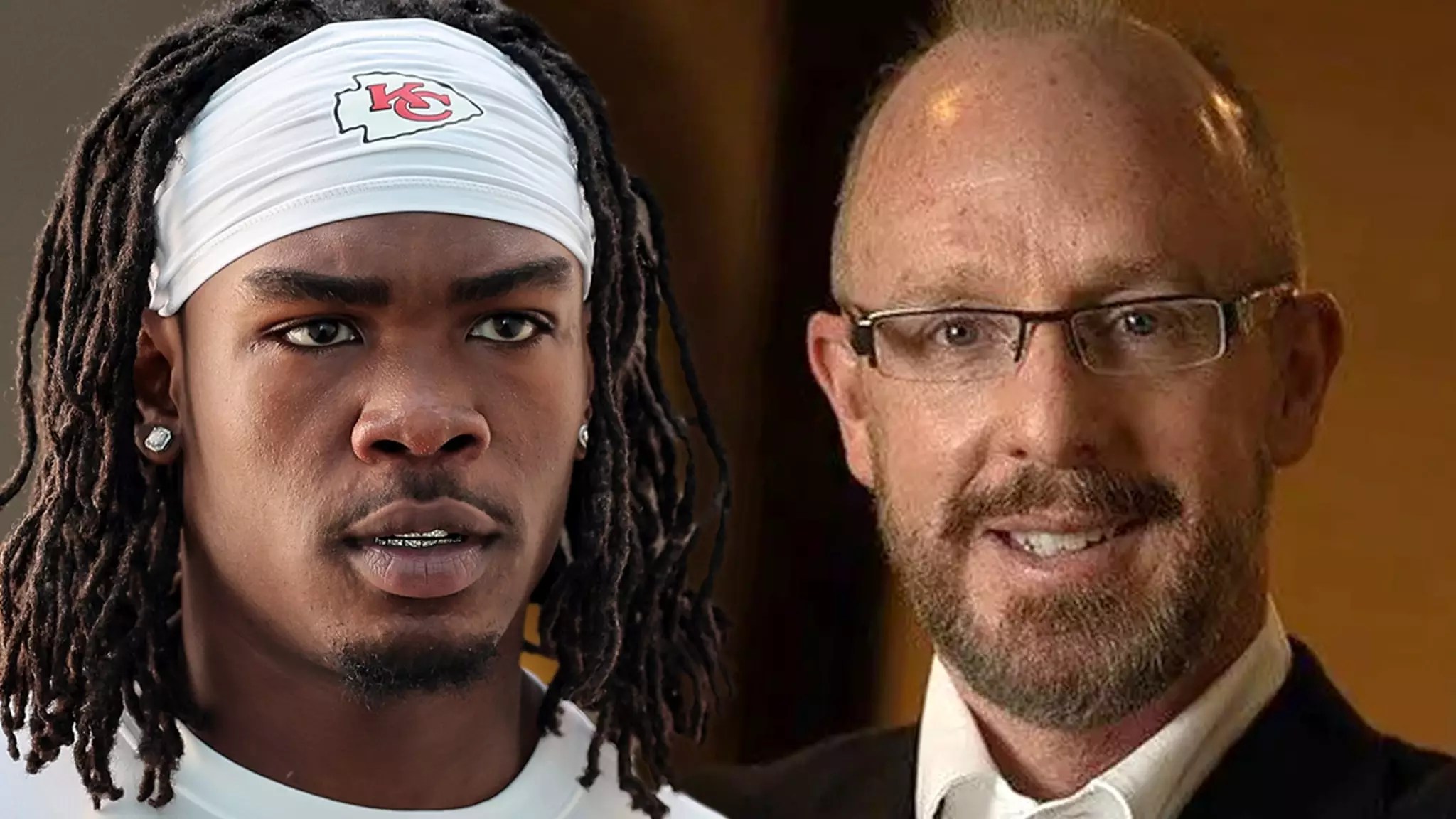In the realm of professional sports, where stars are often celebrated as paragons of virtue, the case of Kansas City Chiefs receiver Rashee Rice stands out not for athletic prowess, but for the glaring questions it raises about values, accountability, and league integrity. Rice is reportedly cleared to play early in the season, despite being embroiled in a distressing legal saga involving a deadly car crash. This situation illuminates a troubling double standard that many fans and critics are quick to notice: the league’s inconsistent approach to discipline, especially when legal matters involving its athletes are at stake.
The NFL’s decision—or perhaps lack thereof—to suspend Rice before legal proceedings are finalized suggests a troubling overlook of the gravity of his alleged actions. While other players like Jordan Addison have faced swift disciplinary measures, Rice’s return seems to highlight the league’s hesitance or outright refusal to enforce uniform standards. It’s difficult not to question whether the league is prioritizing star power and marketability over moral responsibility. The discrepancy signals a hesitance to hold players accountable, risking the integrity of the sport for the sake of entertainment and commercial interests.
The Human Cost of Negligence: Justice and Compassion in Question
At the core of this controversy is the victim, Kathryn Kuykendall, who suffered significant injuries in the crash. Her legal representative, lawyer Marc Lenahan, has voiced justified disbelief regarding Rice’s eligibility to participate in the upcoming games. According to him, an amicable civil settlement—reportedly around $1 million—was reached months ago, yet Rice’s ability to resume playing remains unresolved. This perceived contradiction emphasizes a painful reality: the victim is sidelined, and the legal process seems to be sidelined as well, in favor of sports schedules and PR strategies.
Lenahan’s frustration underscores a broader societal issue: the perceived preferential treatment of athletes, particularly those with high visibility, often at the expense of justice. The fact that Rice, after being involved in a reckless incident involving a Lamborghini at speeds exceeding 100 MPH, could potentially return to the field before fully facing accountability is troubling. It raises questions about whether the NFL views its players as assets to be protected at all costs, or individuals subject to the same rules and consequences as anyone else.
The Reality Behind the Accusations: Recklessness and Escapism
The details of Rice’s actions paint a disturbing picture of recklessness and an apparent culture of impunity. His car race on a Texas highway, involving speeds over 100 MPH, culminating in a crash that injured multiple victims, exemplifies a total disregard for safety and human life. The fact that he fled the scene further complicates his image, transforming him from a promising athlete into a symbol of irresponsibility. His guilty plea to felony charges underscores the severity of his actions, and yet, his potential return to play questions whether justice is truly served.
This scenario exposes a disconnect: the league’s handling of cases involving criminal activity appears influenced less by the severity of violations and more by commercial considerations. Rice’s case, in particular, illustrates how legal issues are sometimes viewed through a lens of potential PR damage rather than ethical obligation.
The NFL’s Moral Compass: Waiting or Wavering?
The league’s delayed disciplinary action, with reports suggesting it won’t decide until late September, is emblematic of an organization caught between competing priorities. Unlike other players who faced swift suspension, Rice’s case seems to be sacrificed on the altar of marketability and spectacle. This delay signals a disturbing message: the NFL may not be fully committed to principles of accountability, especially when reputations and profits are involved.
High-profile games in the season opener, such as the international matchup in Brazil, suggest that the NFL is more invested in global branding than in addressing internal moral dilemmas. The league’s apparent ‘wait-and-see’ approach fosters an environment where players may feel emboldened to test boundaries, knowing that enforcement of rules may not be immediate or consistent. Such a stance risks eroding public trust and diminishes the league’s moral authority.
The Broader Implications for Sports and Society
Ultimately, this controversy extends beyond a single player or team; it taps into the larger discourse about integrity in professional sports. Are athletes above the law? Does the league prioritize entertainment over ethics? When stars like Rice are seemingly allowed to sideline justice, it sends a troubling message: that winning and revenue supersede accountability and human decency.
As societal expectations evolve, the NFL’s handling of this case could serve as a litmus test for its future stance on discipline and reform. Will it embrace a transparent, consistent approach that upholds justice and moral responsibility? Or will it continue to navigate these issues with hesitancy, risking long-term damage to its credibility? The answers will define not only the league’s reputation but also its role as a societal institution entrusted with upholding values that extend beyond the game.







Leave a Reply